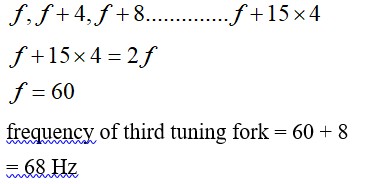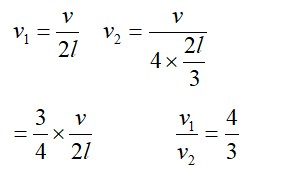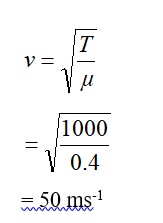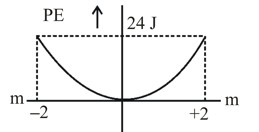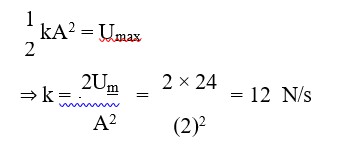Which of the following statements are true for a stationary wave?
(a) Every particle has a fixed amplitude which is different from the amplitude of its nearest particle.
(b) All the particles cross their mean position at the same time.
(c) All the particles are oscillating with same amplitude.
(d) There is no net transfer of energy across any plane.
(e) There are some particles which are always at rest.
Which of the following statements are true for a stationary wave?
(a) Every particle has a fixed amplitude which is different from the amplitude of its nearest particle.
(b) All the particles cross their mean position at the same time.
(c) All the particles are oscillating with same amplitude.
(d) There is no net transfer of energy across any plane.
(e) There are some particles which are always at rest.
This is a multiple choice answer as classified in NCERT Exemplar
(a, b, d, e) a) clearly every particle at x will have amplitude =asinkx=fixed
b) for mean position =0
coswt=0
wt= (2n-1)
hence for a fixed of n all particles are having same value of time t= (2n-1)
c) amplitude of all the particles are
Similar Questions for you
The acceleration of wave is g/2. Its speed increases as it moves up. So answer is (2)
Taking an Exam? Selecting a College?
Get authentic answers from experts, students and alumni that you won't find anywhere else.
On Shiksha, get access to
Learn more about...

Physics NCERT Exemplar Solutions Class 11th Chapter Fifteen 2025
View Exam DetailsMost viewed information
SummaryDidn't find the answer you were looking for?
Search from Shiksha's 1 lakh+ Topics
Ask Current Students, Alumni & our Experts
Have a question related to your career & education?
See what others like you are asking & answering

